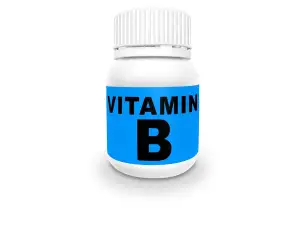Pineapple Predicament: Unraveling the Mystery Behind Mouth Discomfort

Pineapple, with its tropical sweetness and vibrant flavor, is a beloved fruit enjoyed by many. However, for some individuals, eating pineapple can lead to an uncomfortable sensation in the mouth. This phenomenon, known as pineapple mouth discomfort, has puzzled food enthusiasts for years. In this article, we will delve into the science behind this peculiar sensation and explore ways to minimize its effects. So grab a seat and get ready to unravel the mystery behind pineapple mouth discomfort!
The Enzyme Behind the Sensation: Bromelain
Have you ever wondered why eating pineapple can sometimes leave your mouth feeling tingly or uncomfortable? The answer lies in an enzyme called bromelain. Bromelain is a powerful protein-digesting enzyme found in pineapples that is responsible for breaking down proteins.
When bromelain comes into contact with our oral tissues, it starts breaking down the proteins present in our saliva and the cells lining our mouth. This enzymatic activity can lead to a tingling or prickling sensation, commonly known as "pineapple mouth discomfort."
Interestingly, bromelain's enzymatic action doesn't stop at just breaking down proteins in our mouths. It continues to work its magic even after we swallow the pineapple, aiding in the digestion of proteins in our stomachs.
While this enzyme is responsible for the unique taste and texture of pineapples, it can also cause some individuals to experience mild irritation or sensitivity in their mouths. Understanding the role of bromelain helps us unravel the mystery behind pineapple mouth discomfort and appreciate the complexity of this tropical fruit.
Bromelain's Effect on Oral Tissues: Breaking Down Proteins
Bromelain, the enzyme found in pineapples, is responsible for breaking down proteins. When consumed, bromelain comes into contact with oral tissues and begins to break down the proteins present in our mouths. This enzymatic action can lead to a softening of the tissues and a slight discomfort or tingling sensation. It is important to note that this effect is temporary and typically subsides within a short period of time. The breakdown of proteins by bromelain also contributes to the tenderizing effect that pineapple has on meat when used as a marinade. So while it may cause some initial discomfort, bromelain plays an important role in enhancing the culinary experience of pineapple-based dishes.
The Tingling Sensation: Pineapple's High Acidic Content
The tingling sensation experienced when eating pineapple can be attributed to its high acidic content. Pineapples are rich in citric acid, which gives them their tangy flavor. When this acidic juice comes into contact with the delicate tissues in our mouths, it can cause a tingling or stinging sensation. This sensation is temporary and usually subsides quickly. However, if you find it uncomfortable, you can try drinking water or eating something neutral like bread to help alleviate the tingling feeling.
Potential Allergic Reactions: Oral Irritation and Swelling
Pineapple, with its sweet and tangy flavor, is a beloved tropical fruit enjoyed by many. However, for some individuals, consuming pineapple can lead to oral irritation and swelling. This is due to potential allergic reactions that can occur in response to certain proteins found in the fruit.
When someone has an allergic reaction to pineapple, their immune system mistakenly identifies the proteins in the fruit as harmful invaders. In response, it releases histamines and other chemicals that cause inflammation and irritation in the mouth.
Symptoms of an allergic reaction to pineapple may include itching or tingling sensations in the mouth, lips, or throat. Swelling of the tongue or lips can also occur. In severe cases, individuals may experience difficulty breathing or swallowing.
It's important to note that these allergic reactions are relatively rare and most people can enjoy pineapple without any issues. However, if you have a known allergy to other fruits such as kiwi or banana, you may be more susceptible to an allergic reaction from pineapple as well.
If you suspect you have an allergy to pineapple or experience any of these symptoms after consuming it, it's best to consult with a healthcare professional for proper diagnosis and guidance. They may recommend avoiding pineapple altogether or suggest taking antihistamines before consuming it to minimize any potential discomfort.
Remember, everyone's body reacts differently to different foods. While some may experience oral discomfort from pineapple, others may not have any issues at all. It's always important to listen to your body and make choices that align with your individual health needs.
In conclusion, while pineapple is a delicious and nutritious fruit for most people, it can cause potential allergic reactions leading to oral irritation and swelling in some individuals. If you suspect an allergy or experience any symptoms after consuming pineapple, seek medical advice for appropriate management strategies.
Minimizing Pineapple Mouth Discomfort: Tips and Tricks
While pineapple mouth discomfort may be a common occurrence, there are several tips and tricks that can help minimize the sensation. Firstly, try pairing pineapple with other foods that have a higher fat content, such as cheese or yogurt. The fat acts as a barrier between the bromelain enzyme and your mouth tissues, reducing the tingling sensation.
Another helpful tip is to cook or grill pineapple before consuming it. Heat breaks down bromelain, making it less potent and reducing its effects on oral tissues. So, consider adding grilled pineapple to your favorite dishes for a milder experience.
If you still experience discomfort after eating pineapple, rinsing your mouth with cold water or milk can provide relief. These liquids help neutralize the acidic content of pineapple and soothe any irritation.
Lastly, if you have a known allergy to pineapples or bromelain, it's best to avoid consuming them altogether. Allergic reactions can range from mild oral irritation to more severe symptoms like swelling of the lips or throat.
By following these tips and tricks, you can enjoy the unique flavor of pineapple while minimizing any potential mouth discomfort. So go ahead and indulge in this tropical fruit without worry!
While pineapple mouth discomfort may be a temporary inconvenience for some, it should not deter us from enjoying the unique culinary experience that pineapples offer. Understanding the science behind this phenomenon allows us to appreciate the complexity of flavors and textures that pineapples bring to our dishes.
By embracing pineapple's high acidic content and bromelain enzyme, we can explore creative ways to incorporate this tropical fruit into our meals. Marinating meats with pineapple juice can tenderize them and add a subtle tangy flavor. Grilling pineapple slices brings out their natural sweetness and caramelizes their sugars, creating a delightful dessert or side dish.
For those who are more sensitive to pineapple's effects, there are still ways to enjoy its flavor without experiencing discomfort. Pairing pineapple with dairy products like yogurt or ice cream can help neutralize the acidity. Additionally, cooking or heating pineapple can reduce the potency of bromelain, making it milder on the palate.
Ultimately, embracing pineapple's unique culinary experience is about finding a balance between its vibrant flavors and potential mouth discomfort. By understanding how bromelain affects oral tissues and recognizing potential allergic reactions, we can make informed choices while savoring this tropical delight.
So next time you indulge in a juicy slice of pineapple or add it to your favorite recipe, remember to appreciate its distinct taste while being mindful of your own tolerance. Pineapple may have its challenges, but its deliciousness is worth unraveling the mystery behind mouth discomfort.
Published: 12. 12. 2023
Category: Health



